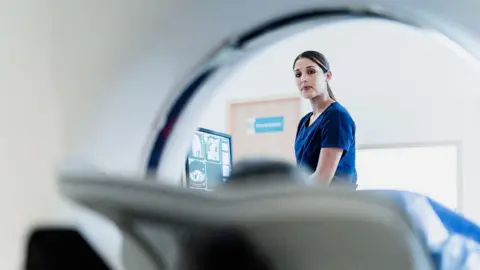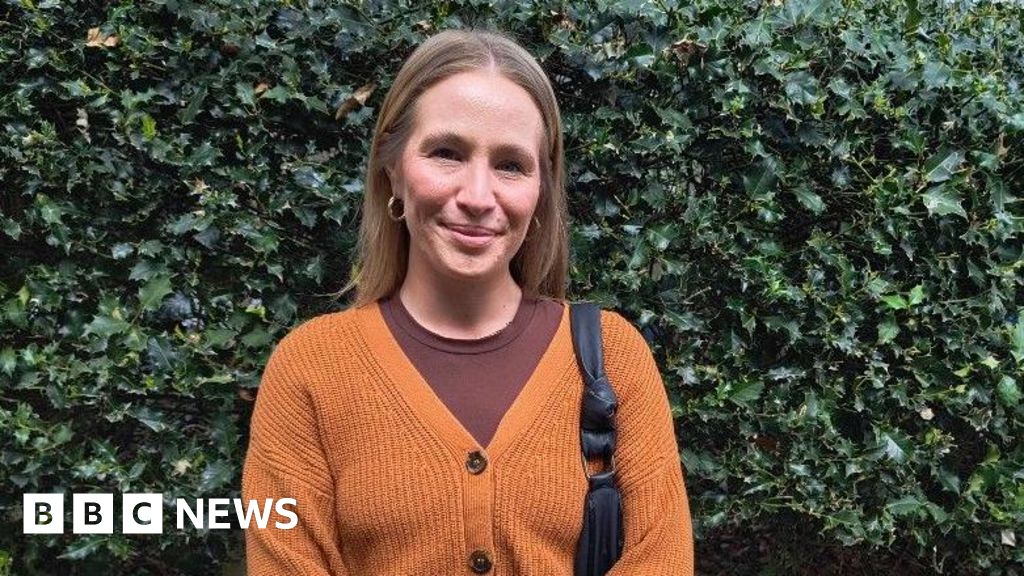ARTICLE AD BOX

 Getty Images
Getty Images
The government has announced some details of its plan to increase the number of NHS hospital appointments and procedures in England by 40,000 per week.
This includes £1.5bn investment in equipment and buildings for the NHS, including money for surgical hubs, new scanners and radiotherapy machines.
Health experts have welcomed the new funding but warned there were many unanswered questions about future policy with the government’s 10-year NHS plan not published until next spring.
Full details of the government's funding plans will come in Wednesday's Budget.
Health Secretary Wes Streeting has repeatedly said "the NHS is broken" since taking on the role in the summer.
The latest waiting time figures for the NHS in England show the backlog for hospital care is 7.64 million. Before the pandemic, it was just over four million.
In August, more than 280,000 people had been waiting for an operation, scan or appointment for more than a year.
And last month, a damning report warned that the NHS in England was in a "critical condition", falling well short of its key targets for cancer, emergency (A&E) and hospital treatment.
What has been announced?
Soon after the election, the new government allocated £1.8bn to cover work by hospitals in England to reduce waiting lists for planned treatment and appointments.
That was new money from the Treasury.
The chancellor has said more funding will be provided to help the NHS deliver the extra 40,000 appointments and procedures per week, promised in the Labour manifesto.
There will also be an extra £1.57bn of capital investment – that is spending on equipment and buildings – that will come through in the next financial year.
The Treasury has not yet published the overall spending numbers for the NHS in England and the Department of Health and Social Care for this year and next – that will come in the Budget.
Only then will it be possible to judge how these spending figures compare with the previous trend, which saw average annual real increases of 3% in recent decades.
Extra money announced by the Westminster government generates more for Scotland, Wales and Northern Ireland as well.
Chancellor Rachel Reeves said the NHS was "the lifeblood of Britain" and that is why she is "putting an end to the neglect and underinvestment it has seen for over a decade".
“We will be known as the government that took the NHS from its worst crisis in its history, got it back on its feet again and made it fit for the bright future ahead of it," she said.
Health and Social Care Secretary Wes Streeting said: "Our NHS is broken but it’s not beaten and this budget is the moment we start to fix it."
Alongside the extra funding, he said "crack teams of top surgeons" would be sent to hospitals across the country to help them treat more patients "and make the money go further".
Siva Anandaciva, chief analyst at The King’s Fund, said there was still more work to do.
"The sums announced today must be the first but not final word if the government is going to meet its ambitions to deliver an NHS that is fit for the future."
The existing backlog of NHS maintenance issues with building and equipment already stands at a "staggering" £13.8bn, he said.
In addition to investment, the NHS also needs enough staff to take on extra shifts, which is a challenge when vacancies are high and staff are feeling overworked and under pressure.
The government said Wednesday's budget would set out its plans for fixing the NHS and rebuilding Britain.

 5 months ago
30
5 months ago
30








 English (US) ·
English (US) ·